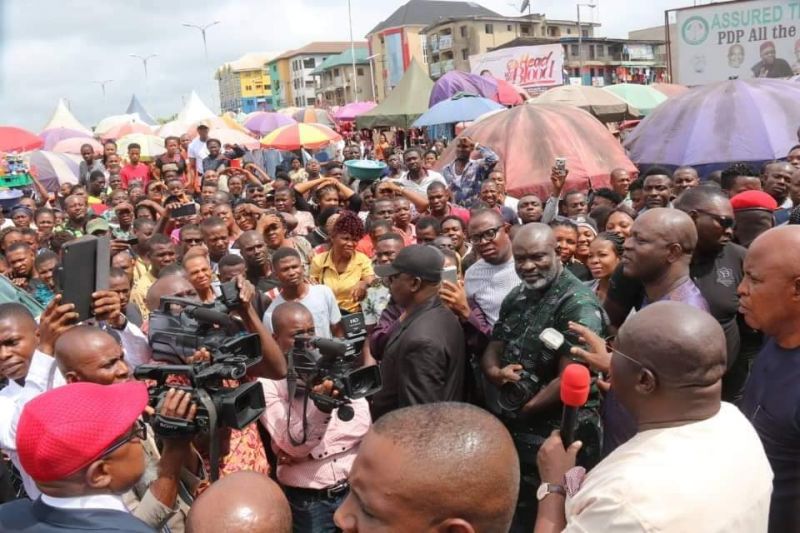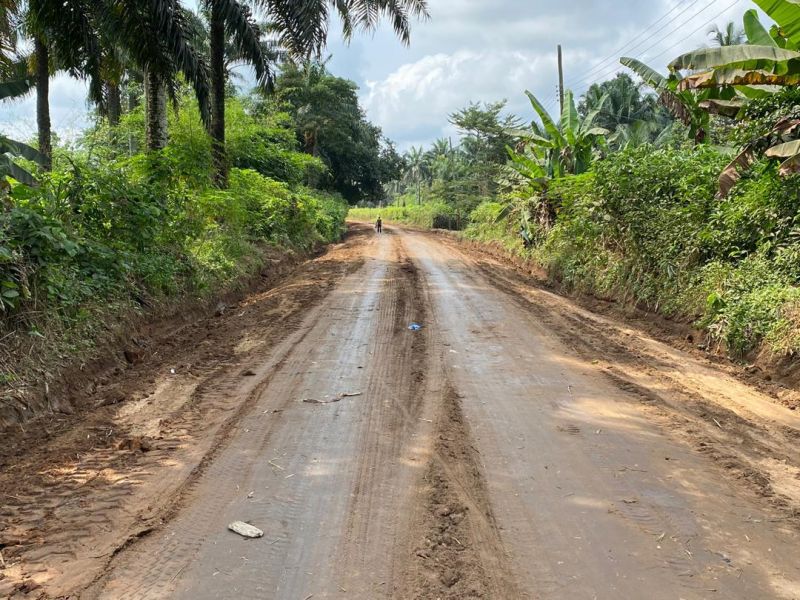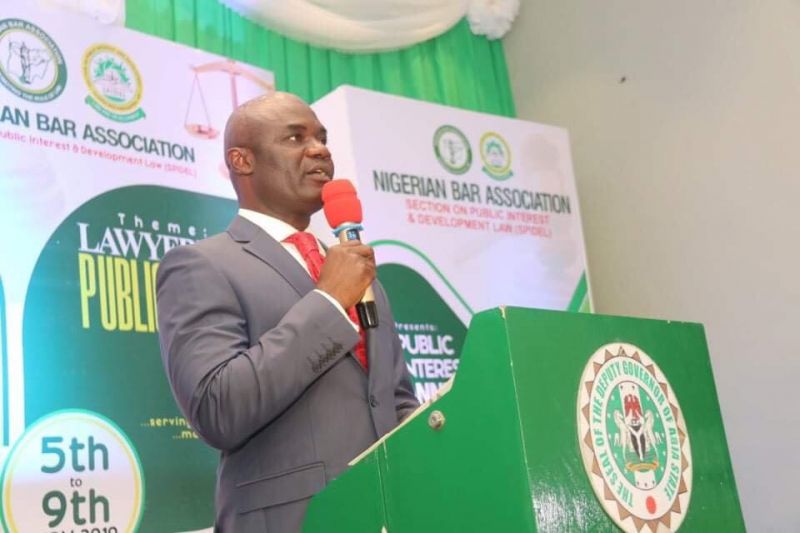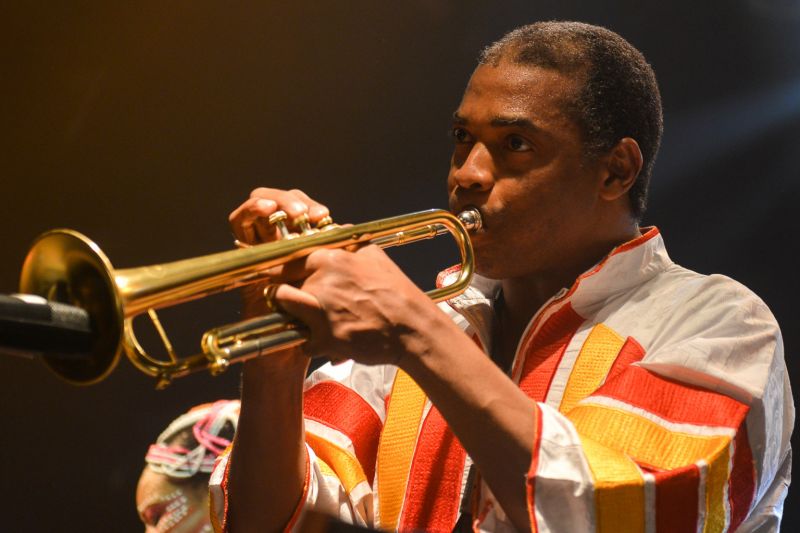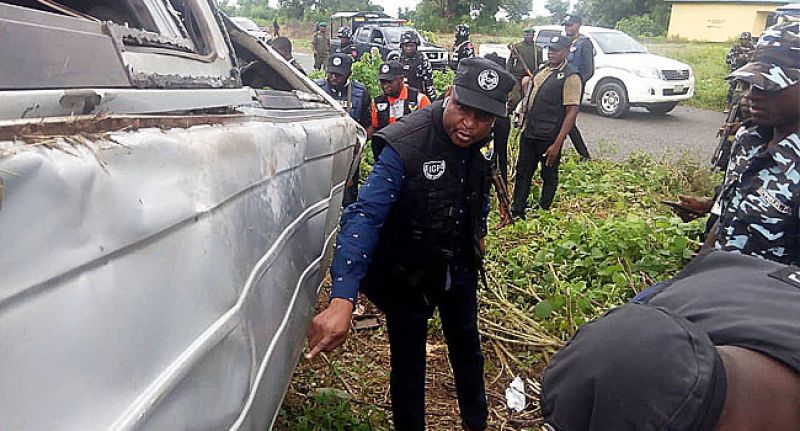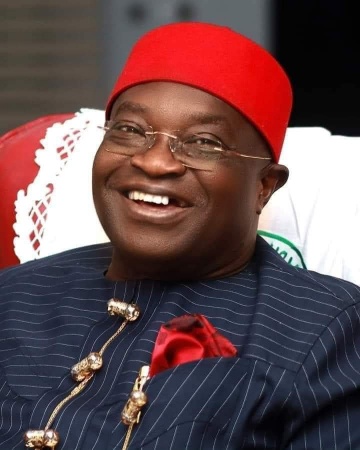Obi lacks right to contest my victory, Tinubu tells tribunal
Posted by FN Editor | one year ago | 524 times
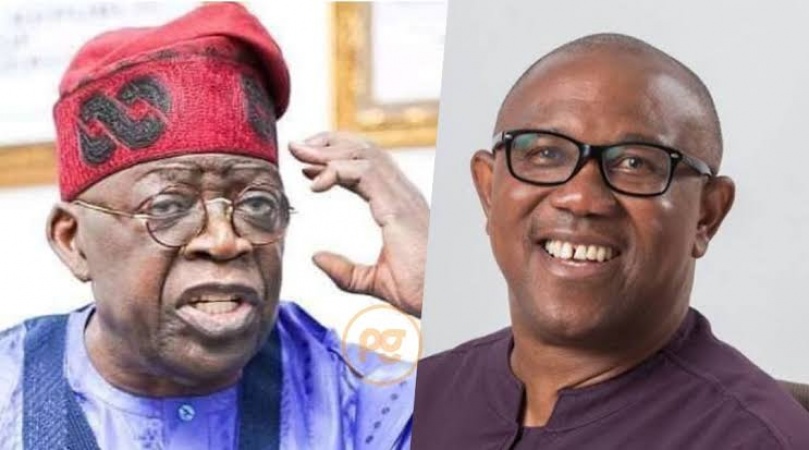
•‘Shettima validly nominated as running mate’
•APC: Atiku, PDP can’t query president-elect’s qualification
President-elect Bola Ahmed Tinubu has queried the right of the Labour Party (LP) candidate, Peter Obi, to challenge his victory.
He argued that while not being a lawful member of the LP as at the time he contested on the party’s platform, he lacked the locus standi to challenge the outcome of the election.
In his response to the petition by Obi and LP filed last night by his team of lawyers, led by Chief Wole Olanipekun (SAN), he queried the competence of Obi’s petition and prayed the court to dismiss it.
He said: “The first petitioner (Obi) has no locus standi to present this petition:
“Whereas it is pleaded in paragraph 4 of the petition that the first petitioner was duly sponsored by the second petitioner (LP) on whose platform the first petitioner contested the election of 25th February, 2023, he was/is not a registered member of the LP, 30 days before the date fixed for the primary/congress that purportedly elected and/or produced Obi (on 30th May 2022) as the presidential candidate of the LP for the presidential election held on 25th February 2023.”
Tinubu and Shettima argued that as against the mandatory provisions of Section 77(2) and (3) of the Electoral Act, 2022 Obi “was/is not a member of the LP as at 30 days before the primary election of the second petitioner held on 30th May 2023”.
They added: “As of 24th May 2022, that is, six days before the primary election of the LP purportedly held to produce/elect Obi as the presidential candidate of the LP for the presidential election held on 25th February 2023, Obi was still a card-carrying member of the Peoples Democratic Party (PDP) and he did not resign his membership of the said party until 24th May, 2022.”
They added that as of 30 days before LP’s presidential primary, Obi was still a presidential aspirant in the PDP.
They also argued that the grounds on which the petition is predicated are incompetent, thereby denying the court the needed jurisdiction.
“Ground one of the petition, to the effect that the 2nd respondent was at the time of the election not qualified to contest the election when read together with the facts purportedly supporting the ground, does not vest jurisdiction in this honourable court to entertain the said ground.
“Ground two which alleges that ‘the election of the 2nd respondent (Tinubu) was invalid by reason of corrupt practices or non-compliance with the provisions of the Electoral Act, 2022’ is unknown and strange to Section 134 (1) of the Electoral Act, and, as such, this honourable court has no jurisdiction to countenance it.
”Ground two of the petition is incompetent, nebulous, imprecise and speculative, having alleged in non-specific terms, that the ‘election of the 2nd respondent was invalid by reason of corrupt practices or non-compliance with the provisions of the Electoral Act, 2022.
“The facts pleaded in support of Ground two, which alleges that the election of the 2nd respondent was invalid by reason of corrupt practices or non-compliance with the provisions of the Electoral Act, 2022 do not have nexus with the said ground.
“Ground three of the petition, which reads that the ‘2nd respondent was not duly elected by majority of the lawful votes cast at the election,’ if read together with the facts purportedly supporting the ground and the reliefs sought, becomes otiose and academic, thus, vests no jurisdiction in the court to entertain it.”
Tinubu and Shettima are also contending that the reliefs being sought by the petitioners are not only incompetent but also ungrantable.
“Relief 1 which reads thus: ‘That it be determined that all the votes recorded for the 2nd respondent in the election are wasted votes, owing to the non-qualification of the 2nd and 3rd respondent’ is also amorphous, omnibus and vague; it confers no benefit on the petitioners.
“Relief (iii) which reads thus: ‘that it be determined that on the basis of the remaining votes (after discountenancing the votes credited to the 2nd respondent) the 1st petitioner scored a majority of the lawful votes cast at the election and had not less than 25 per cent of the votes cast in each of at least 2/3 of the states of the federation, (sic) and the Federal Capital Territory, Abuja, and satisfied the constitutional requirements to be declared the winner of the 25.
“By the way and manner the petitioners have couched relief 1 (iii), they have adulterated, twisted, edited and manipulated the clear provision of section 134 of the Constitution of the Federal Republic of Nigeria, 1999 (as amended).”
They also argued that the claim by Obi and his party that Tinubu was not qualified to contest the election was outside the issue the court could deal with because it falls within the precinct of pre-election issues.
They added: “The pleadings in paragraphs 28-31 of the petition hinge the alleged disqualification of the 2nd respondent on a decision of the United States District Court, Northern District of Illinois, Eastern Division in case No 93C-4483 delivered on October 4, 1993.
“The 2nd respondent herein named was not a party or defendant in the said case No 93C-4483.
“The 2nd respondent was/is not one of the listed parties in the decision of the United States (U.S.) District Court, Northern District of Illinois, Eastern Division in case No 93C-4483 delivered on October 4, 1993, as reproduced in paragraph 28 of the petition.
“The pleadings in paragraphs 28 – 31 of the petition do not disclose a reasonable cause of action cognizable under Sections 131, 134 and 137 of the Constitution of the Federal Republic of Nigeria 1999 (as amended) and section 134 (1) (a) of the Electoral Act, 2022.
“The decision of the United States District Court, Northern District of Illinois, Eastern Division in case No 93C-4483 delivered on October 4, 1993, was not rendered by a Court or Tribunal created pursuant to (or identified in) Section 6 of the Constitution of the Federal Republic of Nigeria 1999 (as amended).
“The decision of the United States District Court, Northern District of Illinois, Eastern Division in case No 93C-4483 delivered on October 4, 1993 is/was not in respect of any cause of action or offence created by an Act of the National Assembly or law of a state, any subsidiary legislation or instrument under the provisions of a law in Nigeria or any written law in Nigeria.”
Tinubu and Shettima argued that the court lacked the jurisdiction to enforce “the purported decision of the United States District Court, Northern District of Illinois, Eastern Division in case No 93C-4483 delivered on October 4, 1993, as sought and alleged under paragraphs 28, 29, 30, 31 and 32 of the petition; the said decision having not been registered in any trial court or domesticated in any court in Nigeria.
“The case of the petitioners as pleaded has not disclosed any disqualifying factor as prescribed by Section 137 (1) (d) and (e) of the Constitution of the Federal Republic of Nigeria 1999 (as amended) in that:
“The 2nd respondent is not currently under sentence of death imposed by any competent court of law or tribunal in Nigeria or any jurisdiction at all.
“The 2nd respondent is not currently under a sentence of imprisonment or fine for any offence involving dishonesty or fraud imposed by any competent court of law or tribunal in Nigeria.
“The petition of the petitioners does not disclose any fact showing that within a -period of less than 10 years before the date of the election to the office of President, the 2nd respondent had been sentenced for an offence involving dishonesty or had been found guilty of the contravention of the code of conduct.
“By the petitioners’ own showing as pleaded in paragraph 29 of their petition, the order, case No. 93c 4483 sought to be relied on was made on October 4, 1993 (about 30 years before the presentation of this petition) not within a period of less than 10 years before the date lection as stipulated by the Constitution.
“By the petitioners’ own showing, the case No. 93c 4483 pleaded in paragraphs 28 and 29 of the petition and relied on in paragraphs 28,29,30,31 and 32 of the petition is not a case of criminal forfeiture cognizant under 18 USC 982 which deals with Criminal forfeiture, rather a civil case for civil forfeiture under 18 USC 981 which the United States of America instituted as a civil Plaintiff against identified properties (not persons) as defendants in respect of which the United States District Court, Northern District of Illinois, Eastern Division exercised its civil jurisdiction (not criminal jurisdiction) under 28 USC 1345 and 1355. Case No.93c 4483 did not generate and had no capacity to generate a criminal conviction or sentence to constitute disqualifying factors under Section 137 (1) of the Constitution.
“Case No.93c 4483 did not involve the process of arraignment, taking of plea, conduct of trial, taking of oral evidence (including cross-examination), hearing of defence, finding of guilt, conviction and sentencing.”
“The United States District Court, Northern District of Illinois, Eastern Division, Judge John A. Nordberg did not, in Case No: 93C 4483 the Order reproduced in paragraph 29 of the petition,” they said.
They argued that Tinubu was never convicted as against the claim by the petitioners.
“The 2nd respondent has never been found guilty/convicted of any criminal offence in respect of which a fine of $460, 000.00 (or any amount whatsoever, was imposed on him by any authority or person, including the United States District Court, Northern District of Illinois, Eastern Division in Case No. 93C 4483.
“The respondents state that, in Case No. 93C 4483 at the United States District Court, Northern District of United States, Eastern Division which was pleaded by the petitioners: No criminal charge was filed against the 2nd respondent:
“The 2nd respondent was not arraigned and did not take/make a plea to any count in a charge for allegations of crime.
“The 2nd respondent did not go through a criminal trial; was not convicted of any crime or for any criminal activity; no sentence of imprisonment was imposed on the 2nd respondent; no sentence of fine was imposed on the 2nd respondent; no form of sentence was imposed on the 2nd respondent.
“Case No.93¢ 4483 was a civil suit in respect of which the court exercised civil jurisdiction under 18 USC 981 and 28 USC 1345 and 1355.
“The respondents further state that in Case No. 93C 4483 at the United States Distinct Court, Northern Distnct of Illinois, Eastern Division, no personal criminal sentence was imposed on the 2nd respondent.
“In further reaction to the false representations in paragraph 29 and 30 of the petition, the said Case No. 93C 4483 was an action in rem against certain assets.
“The suit was settled amicably (with mutual releases and parties agreeing to bear their own costs) and a resultant order of dismissal ‘with prejudice.’
“Specifically, by the order of Judge John A. Nordberg, dated September 15, 1993, it was found and held as follows:
· The parties further agreed that $460,000 from the defendant account held by Heritage Bank in the name of Bola Tinubu shall be forfeited by the United States……
· The additional funds remaining in the account in excess of $460,000 shall be released accordingly, it is hereby ordered that the funds in the above accounts and any accounts held by Citibank or its related entities on behalf of Bola Tinubu or companies over which Bola Tinubu has control shall be released and the action filed against those funds held in those accounts by Citibank shall be dismissed with prejudice.”
Tinubu and Shettima also faulted the claim by the petitioners that Shettima was not qualified to stand for election in view of his alleged double nomination.
They equally faulted the petitioners’ questioning of the manner Tinubu appointed his running mate.
They added: “The procedure for the nomination of the 2nd respondent as the presidential flag bearer of the 4th respondent (APC) was by a primary election that was duly convened and conducted pursuant to the Electoral Act.
“The statutory procedure for the selection of the 3rd respondent as vice-presidential candidate was different from that of the 2nd respondent as the said 3rd respondent was not required to go through the process of any primary election.
“A candidate in an election who wishes to withdraw his candidacy only has an obligation to submit a notice in writing to his political party withdrawing his candidature.
“Upon submission of the notice, the obligations of the candidate are complete, his candidacy stands withdrawn and he has discharged himself of all/any impediment to another nomination. It is then for the political party to subsequently notify the 1st respondent (INEC) of such withdrawal not later than 90 days to the election.”
Source: Nations
Readers Comments
comment(s)
No comments yet. Be the first to post comment.



